An English summer! All too often in our changeable isle the weather is not so good, but at, other times it is glorious. At the present the weather is fine, it has been hot, but not too hot, and the minor heatwave is coming to an end. We had some rain last night, the ideal time, which watered the plants better than any hose can, and today, Sunday 27th July, 2014, I could garden in peace, enjoying the warm weather and spotting the occasional wild creature. There is always room for wild creatures on my ground, even the occasional fox that leaves its spoor in my soil and sometimes the feathers of a dead woodpigeon.

The July allotment
by frankbeswick
An allotment on an English summer day is a delight, gardeners reap their crops, socialize and watch wildlife.
An English Summer
There was wildlife today.I was looking for the wren who dwells in the hedge, but she did not visit. I often miss her, as she does not dart far from the safety of its tangled branches, but I saw the robin. She, I know it is a she because of the browny red breast, follows me at a safe distance when I dig, searching the disturbed earth for grubs. Today I was excavating the compost heap to spread it on dug and cleared beds. She knows the heap will provide rich pickings. It is a hive of life. Gone cold now, there are woodlice galore. The brandling worms have migrated to the adjoining heaps, as they need warmth to survive.I have seen in passing the blackbird that occasionally visits. A frog sticks its head from the pond, where it has been watering against the heat. Often the frogs predate around the compost heap, but it is a bit too hot for that. The field mice are hiding somewhere, I have never found where; and the woodpigeons crash through the foliage as they flee as I approach.
Harvesting and clearing
An azure sky fluffed with moving white cumulus stands over us, and few gardeners are present. Normally Sunday is busy, but the Commonwealth games are on television and proving an attraction.People ask me why I am uninterested in the games, but this is unfair. I watch some events, such as rowing and canoeing, but I love my garden more than sport.
To the right of the picture above, which shows a bed of marrows at the front and cabbages behind you will see an empty bed. That was filled with peas until yesterday. Then I pulled the lot, taking them home to be podded and stored in the freezer. But harvesting is not the end, for after harvest comes renewal. The bed is cleared of weeds. This is hard when the peas are growing, as their tendrils wrap around the weeds and the weed can take the pea plant with it. Once cleared the bed is dug over, for digging replaces the oxygen levels in the soil, which are essential as plants take oxygen via their roots. I have never been too impressed with the no dig school of gardening, for digging replaces the natural action of rooting animals, such as wild pigs. There is a happy medium: too much or too little digging are bad.Then I spread homemade garden compost on the dug bed to renew fertility. I know that it needs it, as the soil has lost some darkness. The blackness in soil comes from humus, a wonderful colloid made from decaying organic matter. It is a soil nutrient, but it also holds other nutrients, such as minerals, and water in its complex and yet inadequately understood structure. The compost replaces humus, which is why we need it.
I dig some potatoes. They have gobbled up the humus in the soil and after digging I know that compost is needed, it is looking paler. Some potatoes are too small to bother with, so I drop them in the black compost bin . Others are put in the jute sack to bring home.So far the crop is not promising, but I am pleased that there are no signs of blight. I had some last year, the first time ever. Look at the marrow bed. That was where the blighted crop grew, and that's why potatoes will not be grown there for several years to come.
The last of the onions have been lifted, and the crop is good. Some are large and quite swollen. This is better than last year when the unseasonal cold in Spring caused them to be smaller than they were in other years.
Soil and Water
This hot spell has forced an emphasis on watering. I go daily to the plot and attach the hose. It does not reach everywhere from the communal tap [there are several of them and I am fortunate to have one near my plot.] The bits that cannot be reached I water with a can. Maybe I could obtain an extension hose, but I have yet to get round to it.
There is also the pond. Ponds attract life. My little pond is fed by no stream, but it has acquired pond weed. Airborne I suppose, but you have to clear the weed as it starves the pond life of oxygen, so there is a daily raking of pond weed.Yet life is drawn to it. I saw a water boatman on the pond. This is an insect that can run across water. I had never seen one until it turned up on my pond. I like to stir the water so as to oxygenate it, and I do this while drawing off weed
Some changes to the compost heaps have been made. In the past I have made bins out of pallets, but, as compost must be turned to keep up the oxygen levels essential to composting, this involves much lifting. On my allotment there were three bins in line, then I saw an idea on a gardening programme. Do not make seperate bins, get rid of the pallets that formed the walls of the bins and have heaps, so when you want to turn the compost just topple it from one bin to the next. It saves lifting heavy material. OK, I am a strong, fit 64, but my thirty three year old son can lift more and faster now than I can. But he won't be round to help much longer. He is getting married next year and will live in the neighbouring city of Salford. I need to cope with the future.
After the uncomposted material is lifted, we reach the black gold below. Rich, black-brown compost, friable and ready to spread. I move several barrow loads of the stuff. It feels like being a miner, digging for the riches in the Earth; and I am mean. I don't want to waste a scrap. All of this has come from my garden waste, and none is going to waste. But a barrow load is heavy, and I am feeling tired. I decide to see if I can excavate the black bin that takes my food waste, but it is swarming with compost worms. Excavating it will kill them, and they are also part of the wildlife of the allotment. I will wait until it goes cool and they die off.
In the picture below you see a barrowload of compost just excavated and ready to spread. It is not the prettiest of pictures, but this is a working garden in action.
Allotments
 | Allotments "The small poems . . . slowly build up to a much larger narrative; a narrative of time and memory, of thinking and looking and being in the world, a kind of history that is happ... |
 | Allotments Andrew Buurman’s photographs capture the essence of the allotment and convey the enthusiasm and diversity of today’s plot holders. |
Social life
I have described a solitary life, but allotmenteers are no hermits or recluses. You get the occasional uncommunicative character, but part of the life is the social experience. Today I was working at the compost bins when I heard a call from outside. The Urmston Allotment Society secretary had arrived for a chat with Jeff and Barbara, two leading committee members. They were not present, so she stayed for a chat with me instead. Often on allotments people meet and talk of common interests. We spoke of the importance of our gardening to us. I said how I have had serious blood pressure issues due to stress and some heart palpitations. She has had similar issues. We shared our experience of the therapeutic effect of gardening. My issues are now under control, but while my doctor was delighted that I gardened she counselled that I should not turn it into a business.
Lesley, the allotment secretary left, and I did a bit more work. Then I went home. Just before I left I decided that as Maureen, my wife, was tired I would take her for a meal. On returning home she told me that she had had the idea that I take her for a meal. So we went to an Italian restaurant. The end of a good afternoon.
You might also like
Gardening in the ParkVolunteering in the local park in my home town has been a boon for me at a d...
Skymeadow: a reviewSkymeadow is more than a conventional gardening book, but is a psychological ...
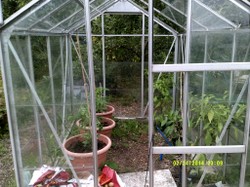

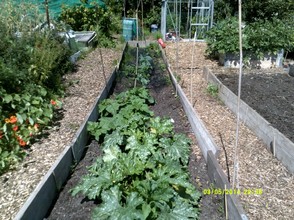



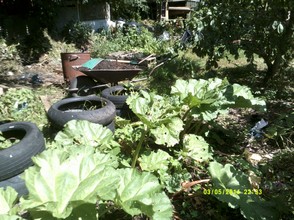

 Darkness over the Earth the skies darkened when Jesus was crucified17 days ago
Darkness over the Earth the skies darkened when Jesus was crucified17 days ago
 TheThousand Year Gardenon 11/26/2025
TheThousand Year Gardenon 11/26/2025
 Women of the Gospelson 10/11/2025
Women of the Gospelson 10/11/2025
 Religious Gardenson 08/25/2025
Religious Gardenson 08/25/2025

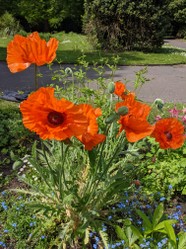
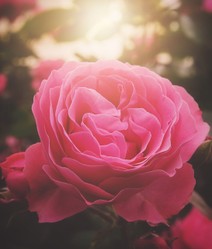
Comments
All. It is the best use for them.
Thank you!
Online sources describe pea pods of such species as snap and sugar peas edible and of such species as garden and sweet peas as inedible.
Do you compost all pea pods or only inedible pea pods?
Yes, prodding is getting the peas from their pods. The pods can then be composted.
The second paragraph to the second subheading, Harvesting and cleaning, considers peas podded and stored.
Does podding separate peas from their pods?
If so, what is the fate of those pods?
Ifbyou could answer that one you would Probably getba Nobel prize.
Thank you!
It intrigues me how one knows when the pond life makes its back into home waters.
Might pond weeds offer different colors and textures with versus without pond life?
Yes. After leaving them to lie by the pond to allow pond life to crawl to safety in the water thebrakings were composted.
The second paragraph in your third subheading, Soil and Water, considers pond weed that gets daily raked.
What happens to the rakings? Would they be moved into the compost pile?
Thank you. My garden is ten yards by forty yards, but there has to be a path at the far end for access by the council [council rules.] My pond is small, and I am deciding what plants to put into it to attract insects and feed tadpoles. I don't struggle with downpours, but there is always a problem up to late May with late frosts.
In Bangalore, having a garden is luxury. The real estate prices are skyrocketing and the concrete jungle is on the rise. Come July, I have to decide what flowering plants I need to select and protect them from heavy downpour. I wish we had more space. Looks like your garden is very spacious, a pond can be an awesome water feature which sustains the eco-system of flora and water-life.